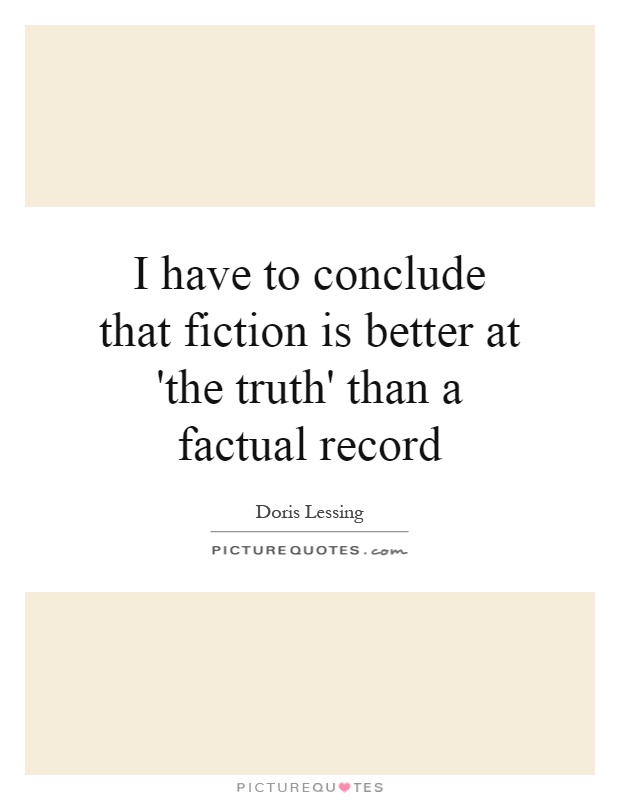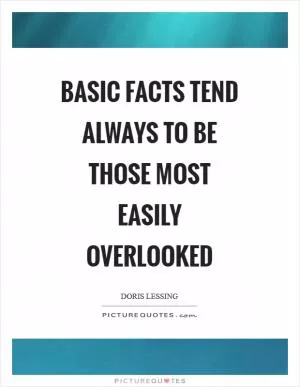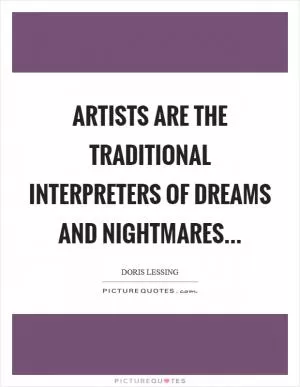I have to conclude that fiction is better at 'the truth' than a factual record

I have to conclude that fiction is better at 'the truth' than a factual record
Doris Lessing, a prolific and acclaimed writer known for her insightful and thought-provoking works, often explored the complexities of human nature and society in her fiction. Through her novels and short stories, Lessing delved into the depths of the human experience, shedding light on the truths that lie beneath the surface of everyday life.One of the reasons why fiction can be better at revealing "the truth" than a factual record is that it allows for a deeper exploration of the complexities and nuances of human emotions and relationships. In her novel "The Golden Notebook," Lessing delves into the inner thoughts and struggles of her protagonist, Anna Wulf, as she grapples with issues of identity, politics, and personal relationships. Through the lens of fiction, Lessing is able to delve into the complexities of Anna's psyche, revealing the truths that lie beneath the surface of her seemingly ordinary life.
Fiction also has the power to transcend time and space, allowing readers to connect with characters and stories that may be far removed from their own experiences. In Lessing's science fiction novel "The Marriages Between Zones Three, Four, and Five," she explores themes of power, gender, and societal norms through the lens of a futuristic society. By creating a world that is both familiar and alien, Lessing is able to challenge readers to question their own assumptions and beliefs, ultimately revealing deeper truths about the nature of human society.
Furthermore, fiction has the ability to evoke empathy and understanding in a way that factual records often cannot. By immersing readers in the lives and experiences of her characters, Lessing is able to create a sense of connection and empathy that allows readers to see the world through a different lens. In her novel "The Grass is Singing," Lessing explores issues of race, class, and power in colonial Africa, challenging readers to confront their own biases and assumptions. Through the power of storytelling, Lessing is able to shine a light on the truths that lie at the heart of these complex and often difficult issues.












 Friendship Quotes
Friendship Quotes Love Quotes
Love Quotes Life Quotes
Life Quotes Funny Quotes
Funny Quotes Motivational Quotes
Motivational Quotes Inspirational Quotes
Inspirational Quotes